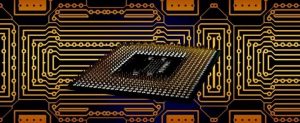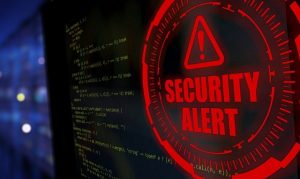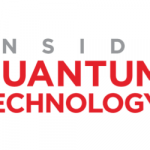Quantum News Briefs November 14: Quantum computers could dramatically boost energy efficiency; How to be crypto-agile before quantum computing arrives; CNRS researcher develops first multidimensional hybrid quantum inertial sensor + MORE

Quantum News Briefs November 14 begins with “Quantum computers could dramatically boost energy efficiency” followed by “How to be crypto-agile before quantum computing arrives”; Third is “CNRS researcher develops first multidimensional hybrid quantum inertial sensor” + MORE
*****
Quantum computers could dramatically boost energy efficiency

Current supercomputers sometimes consume as much electricity as a small town. Since a quantum computer can solve problems in a few hours, whereas a supercomputer might take several tens of billions of years, it is natural to expect it will consume much less energy. Quantum News briefs summarizes an article by Marco Fellous-Asiani, at Centre of New Technologies, University of Warsaw.
A modest goal would be to create less powerful quantum computers capable of solving computations in a time relatively comparable to supercomputers but using much less energy.
The energy cost of computing a quantum computer will mostly come from the need for “protection of the quantum data”. For example, it is often necessary to set the qubit environment close to absolute zero (-273°C) to ensure that no photons populate this environment, avoiding the problem mentioned above. This is a very energy-intensive process.
Some other techniques, such as quantum error correction, also preserve quantum information and can improve the fidelity of operations. However, in addition to the challenges they raise, these techniques also incur a very high energy cost because they involve error detection algorithms, additional qubits for error detection, etc.
The more accurately we want an operation performed on a qubit, the more it will have to be protected and the more energy we will have to spend. There is a strong link between “error rate” and “energy” in quantum computing. Understanding this link precisely may then allow the design of a very energy-efficient computer.
This requires an interdisciplinary approach, including understanding the fundamental phenomena inducing decoherence, modeling quantum error correction algorithms and codes, and the whole “engineering” part necessary to control the qubits. One can then calculate the minimum energy cost needed to solve different problems while aiming at an error probability for the algorithm considered “acceptable”.
One of the primary advantages of quantum computing may well be energetic before it is computational. Click here to read Fellous-Asiani’s article in-entirety.
*****
How to be crypto-agile before quantum computing arrives
 Patrick Walsh, cofounder and CEO of IronCore Labs has authored a recent Forbes article urging readers to adopt and implement a crypto-agile mindset and approach. Quantum News Briefs summarizes article below.
Patrick Walsh, cofounder and CEO of IronCore Labs has authored a recent Forbes article urging readers to adopt and implement a crypto-agile mindset and approach. Quantum News Briefs summarizes article below.
Cryptography underlies all of our most relied-upon systems and is foundational to our assumptions about security and the cloud. Organizations must prioritize crypto-agile projects and establish a plan for how they’ll handle the coming changes. It isn’t a matter of “if” but “how soon quantum computing arrives.
There’s a race to create new cryptographic algorithms that can withstand attacks from both classic and quantum computers, and in the next 10 years, best practices in cryptography will evolve significantly and quicker than they have over the previous 25 years. Companies need to take a crypto-agile approach now to avoid huge, disruptive, urgent, Y2K-level security projects later.
Crypto-agile means to be able to make cryptographic changes quickly and without the burden of massive projects. That means adopting tools and technologies that abstract away underlying cryptographic primitives and that can change readily. To be crypto-agile is to acknowledge that change is on the horizon and that anything built today needs to be able to adapt to coming changes. Smart organizations are already updating existing systems and forcing crypto-agility requirements for all new projects.
The U.S. government is showing a sense of urgency in getting this looming problem fixed. We can’t know all of their motivations, but the rest of us would do well to heed those signals.
It’s easy to let what’s urgent eclipse the important. Reactive security tasks often overwhelm the proactive ones. This leads to unfortunate situations with emergency after emergency in an infinite loop. Ironically, it’s only the investment in proactive measures that can break the cycles. Click here to read original article in-entirety.
*****
CNRS researcher develops first multidimensional hybrid quantum inertial sensor
 The ideal inertial sensor for navigation must, on the one hand, emit signals continuously at a high rate, and on the other, remain precise and sensitive over extended periods. Classic inertial sensors do meet the first criterion, but they err over time. Conversely, quantum sensors are extremely precise and sensitive, but measures are accompanied by dead time. By combining both sensor technologies, a team of scientists led by a CNRS researcher has developed the first multidimensional hybrid quantum inertial sensor. NOTE: CNRS is the French National Centre for Scientific Reesarch.
The ideal inertial sensor for navigation must, on the one hand, emit signals continuously at a high rate, and on the other, remain precise and sensitive over extended periods. Classic inertial sensors do meet the first criterion, but they err over time. Conversely, quantum sensors are extremely precise and sensitive, but measures are accompanied by dead time. By combining both sensor technologies, a team of scientists led by a CNRS researcher has developed the first multidimensional hybrid quantum inertial sensor. NOTE: CNRS is the French National Centre for Scientific Reesarch.
They have demonstrated that their device emits a steady signal at the rate of a classic sensor but with 50 times greater precision, using in situ, real-time calibration made possible by quantum measurements. Such an instrument can be used to continuously measure and track acceleration in three dimensions no matter the position of the sensor. The full potential of these properties may be realized through onboard applications, as for airplane navigation without the aid of global navigation satellite systems. Click here for original Phys.org article.
*****
 Bosch has announced several new initiatives at the Bosch Connected World event this week, including the launch of a new startup to accelerate the development and commercialization of quantum sensors. Quantum News Briefs summarizes Scarlett Evans’ article from IoTWorldToday.
Bosch has announced several new initiatives at the Bosch Connected World event this week, including the launch of a new startup to accelerate the development and commercialization of quantum sensors. Quantum News Briefs summarizes Scarlett Evans’ article from IoTWorldToday.
The startup was first established at the beginning of this year, working to develop quantum sensors for a variety of applications including the biomedical industry. With quantum sensors capable of measurements 1,000 times more accurate than conventional sensors, the technology can be used to more easily identify and diagnose neurological conditions, such as Alzheimer’s.
Additionally, these sensors can sense nerve impulses, a feature that could be harnessed to stimulate movement in prosthetics and create a new way for patients to move artificial limbs purely using thought via virtual reality.
Bosch has also partnered with IBM to further its research in quantum computing, with the company hoping to combine these learnings in quantum sensors and quantum computing to cement Germany as a leader in the emerging quantum market. Click here for additional information on Bosch’s recently announcement of partnership with IBM.
*****
Sandra K. Helsel, Ph.D. has been researching and reporting on frontier technologies since 1990. She has her Ph.D. from the University of Arizona.





















